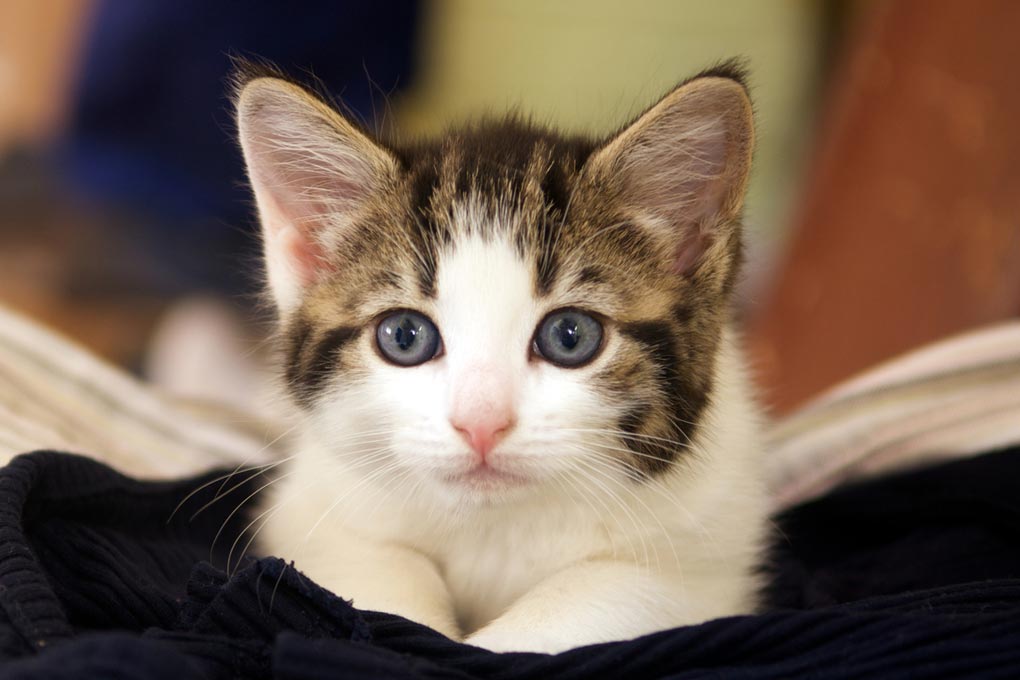Why Does My Cat Chew on Electrical Cords?

It's common for cats to chew on electrical cords, especially when they are kittens. However, it's quite dangerous and can result in choking, electrocution, bad oral burns, or death for the cat and damage to electrical items and fire risk for your home.
Why Do Cats Chew Electrical Cords?
It can be baffling to owners when their cat develops a habit of chewing on cords. Here are the main reasons cats do this:
- Kittens often chew many things, including electrical wires, when they are exploring and learning about their environment and the world.
- Some cats like the way it feels to chew on a cord, which gives them positive reinforcement and encourages them to chew wires in the future.
- Some cats chew on cords and get into other trouble in the home because they are bored and need more enrichment in their daily routine.
- A cat that has never chewed on a cord before and suddenly begins doing so, especially an adult or older cat, might have a dental problem or a nutritional deficiency.
How to Keep Your Cat from Chewing on Cords
The first thing you should do if your adult or older cat starts chewing cords is to visit a veterinarian for a full medical exam. Next, do your best to hide electrical cords or keep them out of reach of your cat. Additionally, you can try these methods:
- Wrap the cords in PVC or a rubber cord protector.
- Spray citrus scented deterrents or bitter apple spray on the cords.
- Try CritterCord, which wraps your cord in another cord that is infused with citrus deterrent.
- Work on training your cat to leave cords alone by using a toy to distract him when he approaches a wire and then giving him praise when he chases the toy instead of bothering the cord. Note that you should still use other precautions to protect your cat from cords while you train.
Provide Plenty of Play Time
Here are some ways to enrich your cat's day and hopefully decrease any boredom that might be contributing to the cord chewing issue:
If you suspect your cat has chewed on an electrical cord, contact your veterinarian immediately. Here is some more information about first aid for electrocution: "First Aid for Electrocution Injury in Cats."
- Make sure you are playing with your cat routinely. Try to engage in several sessions of interactive play with your cat every day.
- Use wand toys to allow your cat to use his hunting instincts, which is hugely enriching for cats and helps fight boredom and stress-related negative behaviors. Be sure to put the toys away when you aren't using them because they are hazardous if they get wrapped around a cat's paw or neck.
-
Find toys that might satisfy your cat's need to chew on objects, especially if you have a kitten. You can even use dog toys like the Kong, which has a rubbery texture like a cord.
- Make sure you have good scratching posts and put them in accessible, high-traffic areas of your home. Cats love and need to scratch, so having these can help decrease boredom and stress.
Remember, cord chewing is dangerous, so it should be a priority to stop the behavior when you see it. You should also do what you can to avoid the problem in the first place when you are getting a new kitten by hiding and wrapping existing cords before you bring him home. It can be easier to keep the problem from starting than to fix it once it does.
You May Also Like These Articles:
First Aid for Electrocution Injury in Cats
First Aid for a Cat That Isn't Breathing
First Aid for a Cat with No Heartbeat
This Common Product Could Kill Your Cat
The Dangers of Detergent Pods for Cats
Interactive Playing with Wand Toys
The Dangers of Strings, Ribbons, and Yarn for Cats
Notice: Ask-a-Vet is an affiliated service for those who wish to speak with a veterinary professional about their pet's specific condition. Initially, a bot will ask questions to determine the general nature of your concern. Then, you will be transferred to a human. There is a charge for the service if you choose to connect to a veterinarian. Ask-a-Vet is not manned by the staff or owners of CatHealth.com, and the advice given should not delay or replace a visit to your veterinarian.





